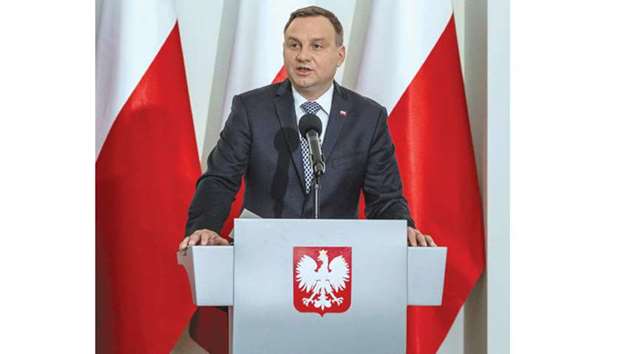Poland’s president has unexpectedly dropped his demands for a greater say in nominating judges, in an effort to secure broader political support for an overhaul of the judiciary that the European Union fears will harm democracy.
Andrzej Duda, an ally of the ruling Law and Justice (PiS) party, conceded that it should ultimately be for parliament to pick Poland’s top judges, hours after saying that he would seek a constitutional amendment to give himself the final say on such appointments.
In July, Duda unexpectedly vetoed the ruling party’s own reform proposals following nationwide protests and warnings from Poland’s Western allies about politicisation of the courts.
Earlier yesterday, he made counter-proposals which still envisaged greater political control over the courts but to be exercised by the president as well as by parliament.
However, lawmakers from both PiS and opposition parties criticised his plans.
After meeting the heads of parliamentary factions, Duda said it was clear he would be unable to win the required parliamentary majority to change the constitution.
“The point is not about me, as the president, to have the power to choose, the point is about the choice being a cross-party one,” Duda said after the meeting.
The eurosceptic PiS says reform of the judicial system is needed because the courts are slow, inefficient and steeped in a communist-era mentality.
But critics of the government plans said its proposed rules were part of a drive towards authoritarianism.
After Duda’s U-turn, parliament will still need a three-fifths majority to appoint new top judges – but if lawmakers cannot agree, a special voting mechanism in parliament will decide the issue rather than the president.
PiS currently has a parliamentary majority, but not three-fifths.
Duda also said the retirement age for Supreme Court judges should be set at 65 and that the president should decide whether they can work longer.
Under the vetoed reforms, all current Supreme Court judges would have stepped down immediately unless they had the approval of the justice minister, who is also prosecutor general.

Duda: The point is not about me ... to have the power to choose (top judges).
